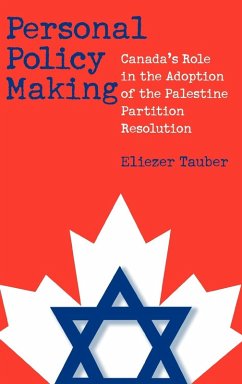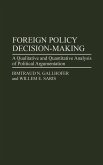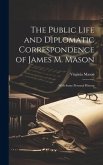Without the Canadian mediation between the two world blocs in 1947, UN resolution 181(II) to partition Palestine would likely have failed to secure the two thirds majority necessary for adoption by the General Assembly. In fact, the Canadians were among the main initiators of the partition plan and the establishment of a Jewish state. Tauber demonstrates that this Canadian involvement was not an official government policy, but rather a private initiative of some high-ranking Canadian foreign service officials who believed partition to be the only practicable solution for the Palestine question. Thus, due to humanitarian concerns, these officials followed an independent policy against the express will of their prime minister. The results would forever change the history of the Middle East. Tauber explores this little known aspect of Canadian foreign policy. Canada's under secretary of state for external affairs, Lester Pearson, assisted by other foreign service officials, decided on his own accord which policy to follow in this instance. Based upon many original Canadian, British, American, UN, and Israeli documents, this study shows that Pearson's motivation was not the desire to make Canada a middle power involved in international affairs, as some scholars of Canadian international affairs have previously argued. Instead, the impact of the Holocaust drove these officials to break ranks with their superiors at home to support the establishment of a Jewish state in Palestine.
Hinweis: Dieser Artikel kann nur an eine deutsche Lieferadresse ausgeliefert werden.
Hinweis: Dieser Artikel kann nur an eine deutsche Lieferadresse ausgeliefert werden.








